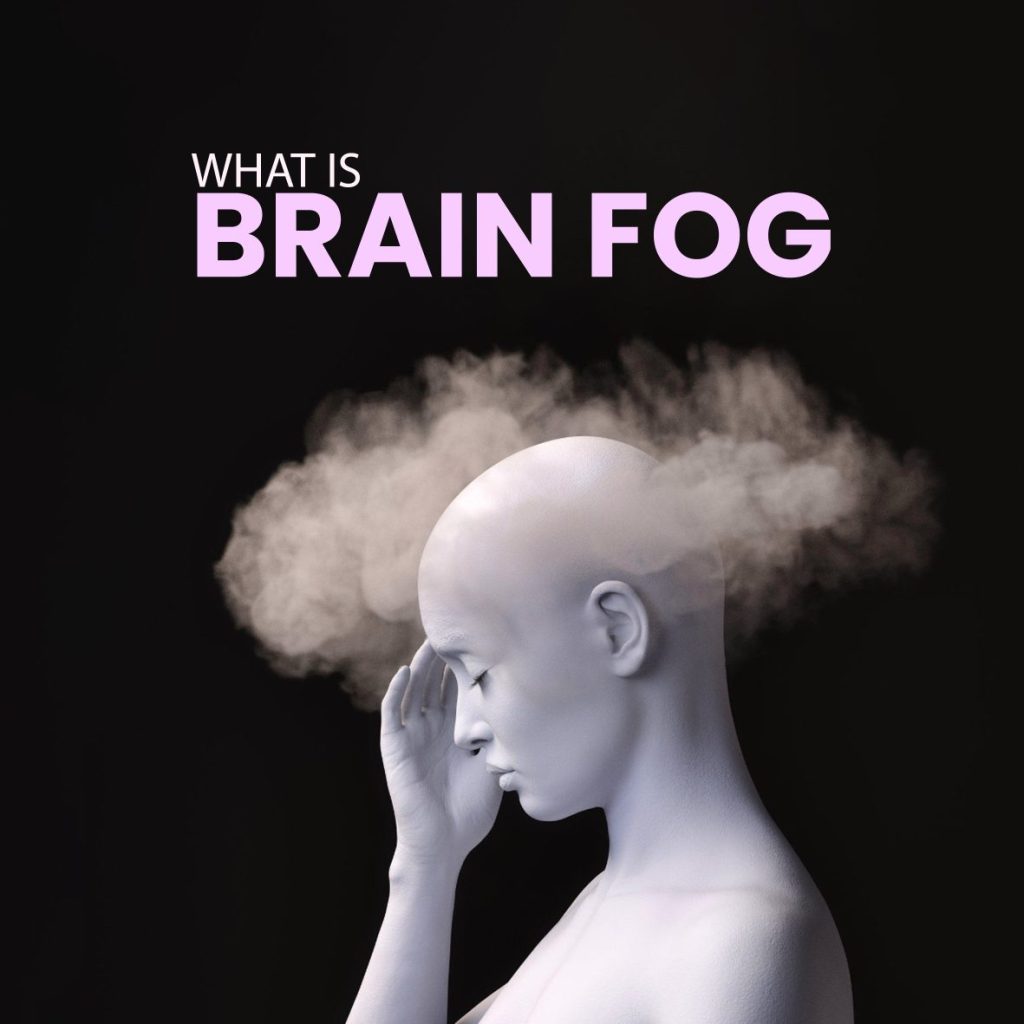
What is Brain Fog
Brain Fog: The Cloudy Cognitive Condition
Have you ever felt mentally sluggish, forgetful, or struggled to concentrate? Maybe you stared blankly during conversations, unable to find the right words. Or you walked into a room only to immediately forget why you went there. If so, you may have experienced brain fog. This cloudy mental state impacts memory, focus, and cognitive function.
Brain fog involves feelings of haziness, confusion, or lack of mental clarity. Simple tasks become challenging when faced with brain fog. People describe it as an inability to think clearly, learn, or process information as usual. Concentrating requires tremendous effort. Memory recall feels like pulling a blank. A mental cloud seems to dampen all cognitive abilities.
Brain fogs differs from regular bouts of poor concentration or forgetfulness. Everyone has occasional lapses in memory or mental fuzziness. However, brain fog causes this altered, fuzzy state to persist for an extended period. The cognitive impairments feel ongoing and don’t easily dissipate like normal mental fatigue might.
Potential Causes of Brain Fog
No single factor definitively causes every case of brain fog. Various potential triggers exist that may induce or contribute to this cognitive haziness. Extreme mental fatigue from conditions like chronic stress could bring it on. Physical factors like lack of sleep, dietary deficiencies, or medical issues may also play a role.
Hormonal fluctuations and imbalances can cloud mental acuity for women at times. Effects range from pregnancy brain fog to mental lapses during menopause. Some viral illnesses or inflammatory conditions get linked to post-illness brain fog as well. In other cases, brain fog arises with no obvious medical cause.
Most experts agree brain fog likely stems from multiple interacting issues. A combination of triggers like poor sleep, diet, stress, hormones, and inflammation can overwhelm the brain. This overwhelmed state leaves the mind in a perpetual fog as it struggles to function optimally.
Brain fog may also trace back to neurological disruptions impacting the brain’s cognitive processing centers. Sleep deprivation, for example, impairs the brain’s ability to clear away toxic byproducts that hinder neural communication. This can leave you feeling mentally sluggish and foggy.
Symptoms of Brain Fog
While individual cases vary, some common brain fog symptoms exist. People report difficulties with concentration, memory recall, vocabulary, and comprehension. Making decisions and completing complex mental tasks suddenly feels draining and challenging.
Brain fog often coincides with extreme mental fatigue or that feeling of being “half awake.” Physical symptoms like headaches, sore muscles, and dizziness can accompany the brain fog. Some people experience visual disturbances, nausea, or numbness.
The core symptom involves feeling mentally “off,” with processing power and acuity significantly impaired. At its worst, brain fog disrupts the ability to function normally in daily activities or at work. Everything from driving, to carrying on conversations, to learning feels exponentially harder.
Brain Fog Isn’t “Normal” Fatigue
Brain fog represents more than typical tiredness. The level of cognitive dysfunction feels atypical and impairing. Simply getting more sleep may not resolve this mental cloudiness. The impairment persists despite adequate rest, caffeine, or temporary focus boosts.
Basic cognitive tasks untouched by regular sleepiness suddenly require intense effort. People cannot shake or easily push through this thick fog clouding their mind. The effects feel profoundly different from everyday mental sluggishness or fatigue. Brain fog represents a separate, abnormal cognitive state.
Who Is Most Prone to Brain Fog?
While brain fog can strike anyone, some groups may face increased susceptibility. For instance, patients struggling with autoimmune conditions like fibromyalgia, lupus, or Lyme disease frequently report “brain fog” among their symptoms. Those with chronic fatigue also experience periodic mental cloudiness.
Individuals under extreme stress show impaired cognitive performance consistent with brain fog. Indeed, high cortisol from stress directly impacts brain processes and neural connections. This can contribute to fogginess. Those with high-pressure jobs or trauma survivors seem more prone to stress-induced mental lapses.
Thyroid disorders that impact metabolism sometimes correlate with cognitive fogginess as well. As a largely hormone-driven process, menopause leaves many women battling temporary mental fog too. Overall, any imbalance disrupting the brain’s intricate neurochemistry creates brain fogs risk.

Overcoming Brain Fog
Since brain fogs stems from multiple potential root causes, treatment approaches vary. Someone experiencing post-viral brain fogs may need different remedies than a person with hormone-related mental cloudiness. However, some general lifestyle strategies help minimize this condition:
• Prioritize Sleep: Sleep deprivation is a major brain fogs contributor. Establishing good sleep habits allows the brain to rest and reset.
• Improve Diet: Balanced nutrition provides energy and essential nutrients for optimal brain function. Anti-inflammatory foods may help too.
• Reduce Stress: Find effective stress management activities like exercise, meditation, journaling, or talk therapy to lower cortisol.
• Treat Medical Issues: Uncover and properly manage any underlying medical triggers like thyroid disorders, vitamin deficiencies, or hormonal imbalances.
• Try Brain Exercises: Mental exercises that challenge memory, focus, and cognitive skills may help rebuild neural pathways for sharper thinking.
While frustrating, brain fogs usually represents a temporary hurdle to overcome. By improving lifestyle factors and treating root issues, the mental cloudiness should lift eventually. Those healthy changes support peak cognitive performance moving forward.
Brain Fog’s Impact
Brain fogs may seem like an inconvenience, but its impacts reverberate significantly. This cognitive impairment disrupts work productivity, relationships, daily functioning, and quality of life. Severe brain fogs leaves people struggling through each day, unable to operate at their typical capacity.
In the workplace, brain fogs compromises focus, memory, task efficiency, and overall performance. This negatively impacts careers, income, and professional advancement. In relationships, the mental lapses complicate communication and intimacy abilities. Independence suffers if brain fogs impairs activities like driving or managing finances properly.
Overall, the confusion and fatigue from brain fogs taxes people physically, mentally, and emotionally. Restoring optimal cognitive function becomes crucial for personal and professional reasons. Despite its amorphous seeming nature, brain fogs represents a real, tangible threat to health and well-being worth taking seriously.

Don’t Succumb to the Mental Fog
While disconcerting, brain fogs should not derail your life entirely. Remaining proactive maximizes your chances of dissipating the cloudiness sooner. Continue pursuing healthy lifestyle habits while working with doctors to identify underlying triggers. Be patient, as regaining peak mental clarity can take time after experiencing brain fogs.
Seek support from loved ones who may need to carry extra responsibilities temporarily. Consider seeking accommodations at work or school until your cognitive function rebounds. Investing effort into brain sharpening activities like puzzles, strategic games, or cognitive rehab programs may also speed the recovery process.
Most importantly, don’t let brain fogs demoralize you or make you doubt your mental capabilities. As an acute, treatable episode, brain fogs differs from permanent cognitive decline. With persistence and comprehensive lifestyle adjustments, you can overcome mental fog and reclaim pristine cognitive capacities. Stay encouraged and advocate for yourself through this challenging but temporary condition.



